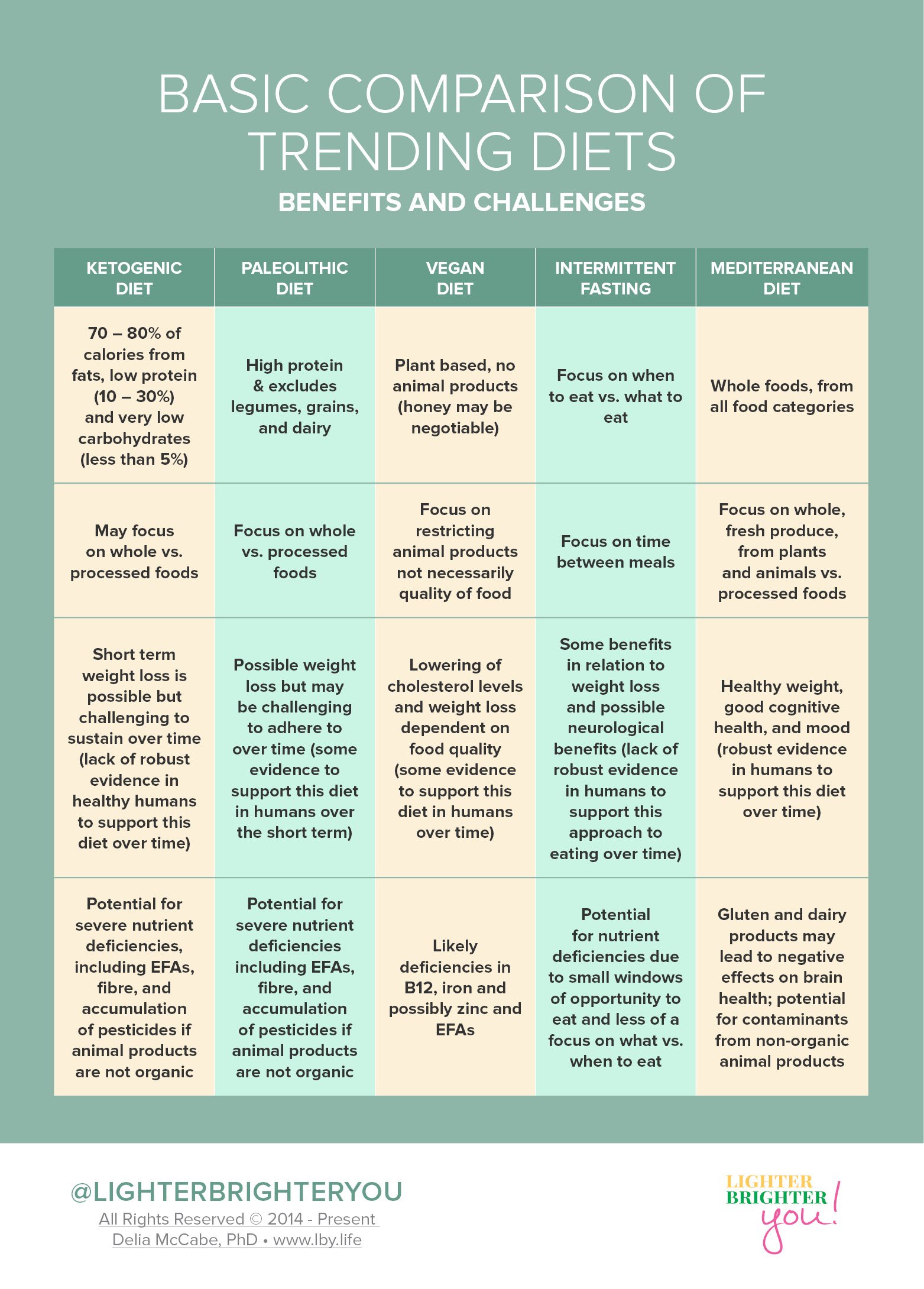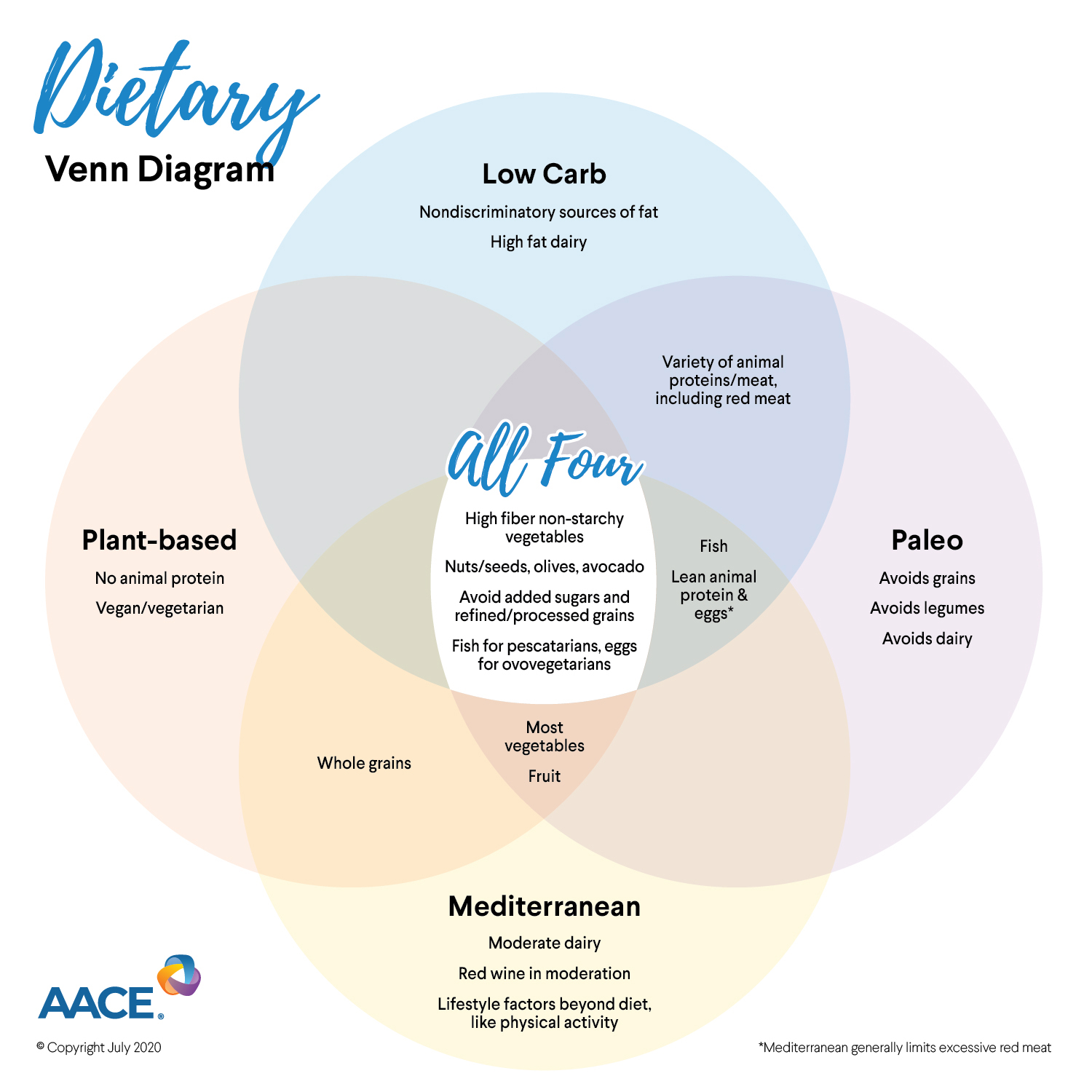
Welcome to our exploration of different types of diets! With so many options available, it can be overwhelming to choose the right diet that suits your individual needs. In this article, we will discuss the Keto, Paleo, and Vegan diets, as well as other popular diet trends like Intermittent Fasting and the Mediterranean Diet. Understanding the basics of each diet, including their benefits and potential drawbacks, can help you make an informed decision about which one might be right for you. So let’s dive in and explore the world of diets together!
Overview of different types of diets

When it comes to diets, there are a wide variety of options available. From low-carb diets like the Keto Diet to ancestral eating patterns like the Paleo Diet, and plant-based diets like Veganism, each diet has its own unique principles and restrictions. Other popular diets include Intermittent Fasting, which involves fasting for specific periods of time, and the Mediterranean Diet, which emphasizes whole foods and healthy fats. Understanding the basics of each diet can help you decide which one aligns with your goals and preferences. So let’s take a closer look at these different types of diets and explore their benefits and potential drawbacks.
Importance of choosing the right diet for individual needs
Choosing the right diet for your individual needs is crucial for achieving your health and wellness goals. Everyone’s body is unique, and what works for one person may not work for another. By selecting a diet that aligns with your specific needs, preferences, and lifestyle, you can optimize your nutrition and overall well-being. A personalized diet can help you maintain a healthy weight, improve digestion, increase energy levels, and reduce the risk of chronic diseases. It is essential to consider factors such as your medical history, dietary restrictions, and cultural or ethical beliefs when selecting a diet plan. Consulting a healthcare professional or registered dietitian can provide personalized guidance and ensure that your chosen diet meets your nutritional requirements. Remember, finding the right diet is about finding what works best for you and your body.
The Keto Diet
The Keto Diet, short for ketogenic diet, is a low-carbohydrate, high-fat diet that aims to induce a state of ketosis in the body. By drastically reducing your carbohydrate intake and increasing your fat consumption, you are forcing your body to use fat as its primary source of fuel instead of glucose. This metabolic state can lead to significant weight loss, increased energy levels, and improved mental clarity. However, it is important to note that the Keto Diet may not be suitable for everyone and can have potential risks, such as nutrient deficiencies and keto flu symptoms. Consult a healthcare professional before starting any new diet plan.
What is the Keto Diet and how does it work?
The Keto Diet is a low-carbohydrate, high-fat diet that aims to induce a state of ketosis in your body. By drastically reducing your carbohydrate intake and increasing your fat consumption, you force your body to switch from using glucose as its primary fuel source to using fat. This metabolic shift encourages your body to burn fat for energy, leading to weight loss. In ketosis, your liver produces ketones, which are used as an alternative fuel source. This process can result in significant weight loss, increased energy levels, and improved mental clarity.
Benefits and potential risks of the Keto Diet

The Keto Diet offers several benefits, including weight loss, increased energy levels, and improved mental clarity. By entering a state of ketosis, your body burns fat for energy, resulting in significant weight loss. Additionally, the diet may help improve insulin sensitivity and reduce inflammation. However, it’s important to consider the potential risks. The Keto Diet can cause nutrient deficiencies, especially if not properly planned. It may also lead to digestive issues, such as constipation. Additionally, the diet may not be suitable for everyone, particularly those with certain medical conditions. Consult with a healthcare professional before starting the Keto Diet.
The Paleo Diet
The Paleo Diet, also known as the Caveman Diet, focuses on consuming foods that our ancient ancestors would have eaten during the Paleolithic era. It emphasizes whole, unprocessed foods such as lean meats, fish, vegetables, fruits, nuts, and seeds while excluding grains, dairy, processed foods, and added sugars. This diet aims to mimic the eating patterns of our ancestors, believing it to be more in line with our biological needs. By following the Paleo Diet, you may experience benefits such as weight loss, improved blood sugar control, and reduced inflammation. However, it’s important to note that the potential drawbacks of the diet include nutrient deficiencies and the exclusion of certain food groups.
What is the Paleo Diet and how does it work?
The Paleo Diet, also known as the Caveman Diet, is based on the idea of eating like our ancient ancestors did during the Paleolithic era. The diet focuses on consuming whole, unprocessed foods such as lean meats, fish, vegetables, fruits, nuts, and seeds, while excluding grains, dairy, processed foods, and added sugars. The belief behind this diet is that our bodies are better adapted to the types of foods our ancestors ate, and that a return to this eating pattern can improve our health. By following the Paleo Diet, you eliminate foods that are thought to be less compatible with our biology, potentially reducing inflammation and promoting weight loss.
Health benefits and possible drawbacks of the Paleo Diet
The Paleo Diet offers several health benefits by promoting the consumption of whole, unprocessed foods. These benefits may include improved digestion, increased nutrient intake, weight loss, and reduced inflammation. By eliminating processed foods and added sugars, the Paleo Diet can potentially lower the risk of chronic diseases such as diabetes and heart disease. However, it is important to note that the Paleo Diet restricts certain food groups like grains and dairy, which may result in nutrient deficiencies if not carefully planned. It may also be challenging to follow the Paleo Diet in social situations or when dining out.
The Vegan Diet

The Vegan Diet: What is it and what does it entail?
The Vegan Diet is a plant-based eating plan that excludes all animal products, including meat, dairy, eggs, and honey. It focuses on consuming fruits, vegetables, legumes, whole grains, and plant-based proteins. The diet is rich in fiber, vitamins, minerals, and antioxidants. Veganism is often driven by ethical or environmental concerns. However, it is important to ensure adequate intake of essential nutrients such as vitamin B12, iron, and omega-3 fatty acids, which are commonly found in animal products. Supplementation or careful planning can help vegans meet their nutrient needs while enjoying the benefits of a plant-based lifestyle.
What is the Vegan Diet and what does it entail?
The Vegan Diet is a plant-based eating plan that excludes all animal products, including meat, dairy, eggs, and honey. It involves consuming a variety of fruits, vegetables, legumes, whole grains, and plant-based proteins. The focus is on obtaining nutrients from plant sources, which are rich in fiber, vitamins, minerals, and antioxidants. Veganism is often motivated by ethical and environmental concerns. However, it’s important to ensure you’re getting essential nutrients like vitamin B12, iron, and omega-3 fatty acids, which are commonly found in animal products. Supplementation or careful planning can help vegans meet their nutrient needs while enjoying the benefits of a plant-based lifestyle.
Advantages and considerations of the Vegan Diet
The Vegan Diet offers several advantages for individuals who choose to follow a plant-based lifestyle. Some benefits include:
- Health benefits: A vegan diet is typically high in fiber, which can aid digestion and promote a healthy weight. It is also rich in essential nutrients like vitamins, minerals, and antioxidants.
- Environmental impact: By adopting a vegan diet, you contribute to reducing greenhouse gas emissions, land degradation, and water pollution associated with animal agriculture.
Considerations:
- Nutrient deficiencies: Vegans need to ensure they get enough vitamin B12, iron, and omega-3 fatty acids, which are commonly found in animal products. Supplementation or careful planning can help meet these needs.
- Meal planning and variety: Following a vegan diet may require more careful planning to ensure a balanced intake of nutrients and a diverse range of plant-based foods.
Overall, the Vegan Diet offers numerous health and environmental benefits, but it is necessary to address potential nutrient deficiencies and meal planning considerations to maintain optimal health.
Other Popular Diets

Intermittent Fasting is a popular eating pattern that involves alternating between periods of fasting and eating. It can help with weight loss, improve insulin sensitivity, and provide several health benefits. Variations include the 16/8 method, where you fast for 16 hours and eat within an 8-hour window, and alternate-day fasting, where you eat normally on some days and significantly reduce calorie intake on others.
The Mediterranean Diet is a plant-based eating plan that emphasizes fruits, vegetables, whole grains, legumes, nuts, and olive oil. It is associated with lower risk of heart disease, stroke, and certain cancers. The diet promotes lean proteins like fish and poultry and limits red meat consumption. It also encourages moderate wine consumption and emphasizes lifestyle factors such as physical activity and social connections.
Overall, these popular diets offer different approaches to nutrition and have their own set of benefits. It’s important to choose a diet plan that aligns with your preferences and goals, while also considering any health conditions or dietary restrictions. Consulting a healthcare professional can provide personalized guidance and support in finding the right diet for you.
Intermittent Fasting: Benefits and variations
Intermittent Fasting is an eating pattern that involves cycling between periods of fasting and eating. It offers several benefits, including weight loss, improved insulin sensitivity, and reduced inflammation.
There are various variations of intermittent fasting, such as the 16/8 method, where you fast for 16 hours and consume all your daily calories within an 8-hour window. Another variation is alternate-day fasting, where you eat normally on some days and restrict your calorie intake on others.
Intermittent fasting can be a flexible and effective approach to managing weight and improving overall health. It is important to consult a healthcare professional to determine the best fasting protocol for your individual needs.
Mediterranean Diet: Features and health advantages
The Mediterranean Diet is based on the traditional eating patterns of countries surrounding the Mediterranean Sea. It emphasizes consumption of fruits, vegetables, whole grains, legumes, nuts, and olive oil. Lean proteins, such as fish and poultry, are also included, while red meat and processed foods are limited. This diet is rich in nutrients and healthy fats, which can lower the risk of heart disease, stroke, and certain cancers. The Mediterranean Diet is also associated with improved brain health and longevity. Incorporating these dietary principles into your eating habits can contribute to overall well-being and promote a healthier lifestyle.
Conclusion
In conclusion, when exploring different types of diets such as the Keto Diet, Paleo Diet, Vegan Diet, Intermittent Fasting, and Mediterranean Diet, it is important to consider your individual needs and goals. Each diet has its own unique features, benefits, and potential risks. Therefore, it is crucial to choose a diet that aligns with your lifestyle and preferences. Consulting a healthcare professional before making dietary changes is essential to ensure a safe and effective approach. Remember, making informed decisions about your diet can contribute to your overall well-being and lead to a healthier lifestyle.
Key takeaways and considerations when choosing a diet plan

When choosing a diet plan, it’s important to consider your individual needs and goals. Keep these key takeaways in mind:
- Assess your health condition and consult a healthcare professional before starting any diet.
- Consider your lifestyle, preferences, and ability to sustain the diet long-term.
- Look for a diet that provides balanced nutrition and supports your overall well-being.
- Be aware of any potential risks or side effects associated with the diet.
- Remember that no one-size-fits-all approach, so choose a diet that works best for you.
By making informed decisions, you can find a diet plan that aligns with your needs and sets you up for long-term success.
Importance of consulting a healthcare professional before making dietary changes
Consulting a healthcare professional before making dietary changes is crucial for several reasons. First and foremost, they can assess your current health condition and provide personalized guidance based on your individual needs. They can also help you determine if any underlying health issues may be impacted by the diet plan you are considering. Additionally, healthcare professionals can provide valuable insight into potential risks or side effects associated with certain diets. By seeking their expertise, you can make informed decisions and ensure that any dietary changes you make are safe and beneficial for your overall well-being.

